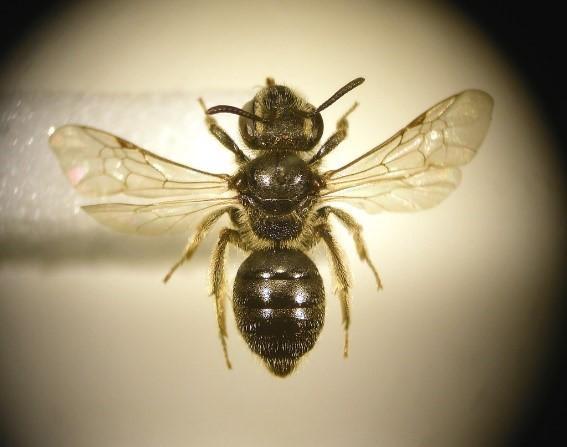
1 minute read
Scarce Bees
from BIS Recorders Newsletter, Spring/Summer 2020
by Biodiversity Information Service for Powys and Brecon Beacons National Park
Nationally Scarce Bee in Brecknock
Whilst identifying the bees from a survey of Allt Rhongyr Nature Reserve in the Brecon Beacons, I came across a ‘mini-mining bee’ called Andrena falsifica. This is a group of small Andrena species, and identification can be particularly tricky. After identifying the 3 specimens, I sent them to a national expert for verification.
Advertisement
Andrena falsifica female. Photo - Steven Falk

This species has already been found in south Wales, from the Colliery Spoil heaps. It has also been recorded from Cumbria, which is the most northern record so far.
Andrena falsifica prefers calcareous grassland, moorland edge and heathland. It is known to have a flight season from March until late
July and possibly two generations in the year. This is the 9 th record for Wales and a first for Brecknock and indeed, BIS.
The distinctively featured abdomen of Andrena falsifica. Photo—Steven Falk
References: Field Guide to the Bees of Great Britain and Ireland, Steven Falk, Bloomsbury Publishing, 2015
Janice Vincett, Vice County Recorder for Bees & Wasps, Breconshire & Radnorshire
Conservatories, greenhouses and polytunnels as insect traps
With over 500 species of solitary bees and wasps in the UK, Montgomeryshire has very few records for this group. Many species are very small, and it is not always obvious what they are. It would help our understanding of what is in the county if you could collect up any dead bees and wasps from your greenhouses and conservatories this summer, package them up and send to Clare. Clare’s polytunnel has already produced many new county records. If you are not sure if it is a bee or wasp, count the wings as a starting point. Flies have only one pair of wings whereas bees and wasps have two pairs.










